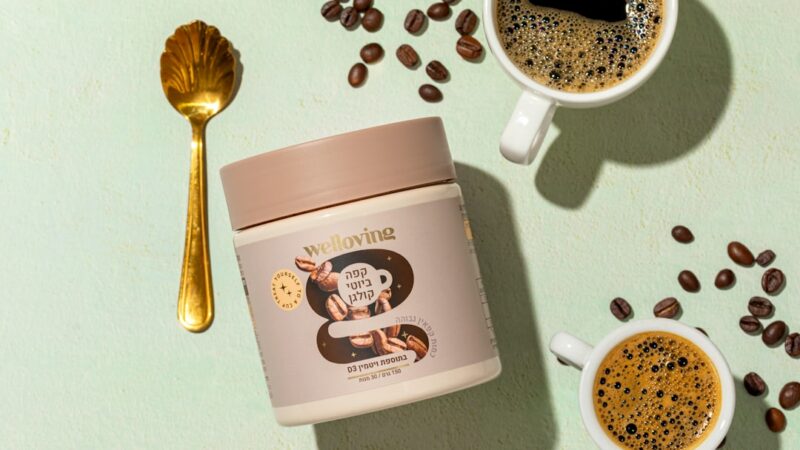Uncovering the Unexpected Side Effects of Coconut Water: What They Don’t Tell You

Coconut water has gained immense popularity in recent years as a health drink. Explore the side effects of coconut water alongside its myriad health benefits in our comprehensive guide. Dive into nutritional insights, unexpected reactions, and how this tropical drink can impact your wellness journey.
It is not only refreshing but also packed with nutrients that offer numerous health benefits. Coconut water is the clear liquid found inside young, green coconuts. It has been consumed for centuries in tropical regions, but it wasn’t until recently that it gained global recognition.
The rise of coconut water as a popular health drink can be attributed to its association with hydration and its natural electrolyte content. It is often marketed as a healthier alternative to sports drinks due to its natural ingredients and lower sugar content. Additionally, coconut water is often praised for its ability to replenish electrolytes lost during exercise or illness.
Table of Contents
Key Takeaways
- Coconut water is a popular beverage due to its refreshing taste and perceived health benefits.
- Coconut water is a good source of nutrients such as potassium, magnesium, and calcium.
- Drinking too much coconut water can lead to unexpected side effects such as bloating and diarrhea.
- Coconut water may help lower blood pressure and prevent electrolyte imbalances.
- People with kidney stones or allergies to coconut should avoid drinking coconut water.
The Nutritional Value of Coconut Water
Coconut water is not only delicious but also highly nutritious. It is low in calories and fat, making it a great choice for those looking to maintain a healthy weight. Additionally, coconut water is rich in essential nutrients such as potassium, magnesium, calcium, and vitamin C.
Potassium is an important mineral that plays a crucial role in maintaining proper heart function and regulating blood pressure. Magnesium is essential for muscle function and energy production, while calcium is necessary for strong bones and teeth. Vitamin C is a powerful antioxidant that helps boost the immune system and protect against oxidative stress.
When compared to other sports drinks and beverages, coconut water stands out for its natural composition. Unlike many sports drinks that are loaded with artificial flavors, colors, and sweeteners, coconut water is free from additives and preservatives. It also contains less sugar than most fruit juices and sodas, making it a healthier choice for those watching their sugar intake.
The Unexpected Side Effects of Drinking Coconut Water
While coconut water offers numerous health benefits, it can also have some unexpected side effects. Some people may experience bloating or diarrhea after consuming large amounts of coconut water. This is often due to the high fiber content of coconut water, which can be difficult for some individuals to digest.
To avoid these side effects, it is important to consume coconut water in moderation and gradually increase your intake over time. It is also advisable to drink coconut water on an empty stomach or between meals to aid digestion. Additionally, choosing fresh coconut water over packaged varieties can help minimize the risk of side effects, as packaged coconut water may contain added sugars or preservatives.
Coconut Water and Blood Pressure
Several studies have explored the effects of coconut water on blood pressure, and the results have been promising. Coconut water is naturally rich in potassium, a mineral that helps regulate blood pressure by counteracting the effects of sodium. High sodium intake is a known risk factor for hypertension, and increasing potassium intake can help lower blood pressure levels.
One study published in the West Indian Medical Journal found that drinking coconut water significantly reduced systolic blood pressure in 71% of participants with hypertension. Another study published in the Journal of Medicinal Food found that coconut water had a positive effect on blood pressure in both hypertensive and normotensive individuals.
These findings suggest that coconut water can be used as a natural remedy for hypertension. However, it is important to note that individual results may vary, and it is always best to consult with a healthcare professional before making any significant changes to your diet or lifestyle.
Coconut Water and Electrolyte Imbalance
Electrolytes are minerals that carry an electric charge and play a crucial role in maintaining proper fluid balance, nerve function, and muscle contractions. When we sweat or experience dehydration, we lose electrolytes such as sodium, potassium, calcium, and magnesium.
Coconut water is an excellent source of electrolytes, making it an ideal choice for rehydration after exercise or illness. In fact, studies have shown that coconut water is just as effective as sports drinks in rehydrating the body and replenishing electrolytes.
One study published in the Journal of the International Society of Sports Nutrition compared the rehydration effects of coconut water, sports drinks, and plain water after exercise-induced dehydration. The results showed that coconut water was just as effective as the sports drinks in restoring hydration and electrolyte balance.
Coconut Water and Digestive Issues

Coconut water has been praised for its ability to promote digestive health. It is rich in fiber, which helps regulate bowel movements and prevent constipation. Additionally, coconut water contains natural enzymes that aid in digestion and promote the growth of beneficial gut bacteria.
The high fiber content of coconut water can also help alleviate symptoms of digestive issues such as acid reflux and indigestion. It acts as a natural antacid, neutralizing stomach acid and providing relief from heartburn.
Furthermore, coconut water is a natural source of electrolytes, which can help soothe an upset stomach and restore balance in the digestive system. It is often recommended for individuals suffering from diarrhea or vomiting, as it can help replace lost fluids and electrolytes.
Coconut Water and Allergic Reactions
While coconut water is generally safe for most people to consume, there is a potential for allergic reactions in some individuals. Coconut allergies are relatively rare but can cause symptoms such as itching, hives, swelling, or difficulty breathing.
If you suspect you may be allergic to coconut water, it is important to seek medical advice and get tested for allergies. If you have a known allergy to coconuts or any other nuts, it is best to avoid coconut water altogether to prevent any adverse reactions.
Coconut Water and Kidney Stones
There has been some concern about the link between coconut water and kidney stones due to its high potassium content. However, research suggests that coconut water may actually help prevent kidney stones rather than cause them.
Kidney stones are often formed when there is an imbalance of minerals in the urine, leading to the formation of crystals. Coconut water is rich in potassium and magnesium, which can help prevent the formation of calcium oxalate stones, the most common type of kidney stone.
Additionally, coconut water is a natural diuretic, meaning it can increase urine production and help flush out toxins and waste products from the body. This can help prevent the buildup of minerals in the kidneys and reduce the risk of kidney stone formation.
Coconut Water and Blood Sugar Levels
Coconut water has a low glycemic index, meaning it does not cause a rapid spike in blood sugar levels. This makes it a suitable choice for individuals with diabetes or those looking to manage their blood sugar levels.
Several studies have investigated the effects of coconut water on blood sugar levels. One study published in the Journal of Medicinal Food found that drinking coconut water significantly reduced blood sugar levels in diabetic rats. Another study published in the British Journal of Nutrition found that consuming coconut water improved insulin sensitivity in individuals with type 2 diabetes.
These findings suggest that coconut water may have potential as a natural remedy for diabetes. However, more research is needed to fully understand its effects on blood sugar control and its long-term implications for individuals with diabetes.
Is Coconut Water Right for You?
In conclusion, coconut water offers numerous health benefits and is a delicious and refreshing beverage option. It is packed with essential nutrients, low in calories and fat, and can help replenish electrolytes lost during exercise or illness.
However, it is important to consume coconut water in moderation and be aware of any potential side effects. Some individuals may experience bloating or diarrhea when consuming large amounts of coconut water, so it is best to start with small quantities and gradually increase your intake.
If you have any underlying health conditions or concerns, it is always best to consult with a healthcare professional before incorporating coconut water into your diet. They can provide personalized advice based on your specific needs and help determine if coconut water is a good choice for your health goals.
Enhancing Your Health Knowledge
For those interested in exploring the effects of natural health products further, consider reading about the “Unveiling the Truth: Does Coconut Water Have Electrolytes” on turntobehealthy.com. This article offers insights into the side effects of coconut water alongside its myriad health benefits in our comprehensive guide. Read more
FAQs
What are the unexpected side effects of coconut water?
According to the article, the unexpected side effects of coconut water include allergic reactions, high levels of potassium, and interference with certain medications.
What are the symptoms of an allergic reaction to coconut water?
Symptoms of an allergic reaction to coconut water may include hives, itching, swelling, difficulty breathing, and anaphylaxis.
Why can high levels of potassium in coconut water be dangerous?
High levels of potassium in coconut water can be dangerous for individuals with kidney problems or those taking certain medications, as it can lead to hyperkalemia, a condition that can cause muscle weakness, irregular heartbeat, and even cardiac arrest.
Which medications can be affected by coconut water?
Coconut water can interfere with certain medications, including blood pressure medications, diuretics, and ACE inhibitors, potentially leading to adverse effects.
Is coconut water safe for everyone to consume?
While coconut water is generally considered safe for most people, individuals with kidney problems, those taking certain medications, and those with a history of allergic reactions to coconut should exercise caution and consult with a healthcare provider before consuming it.






